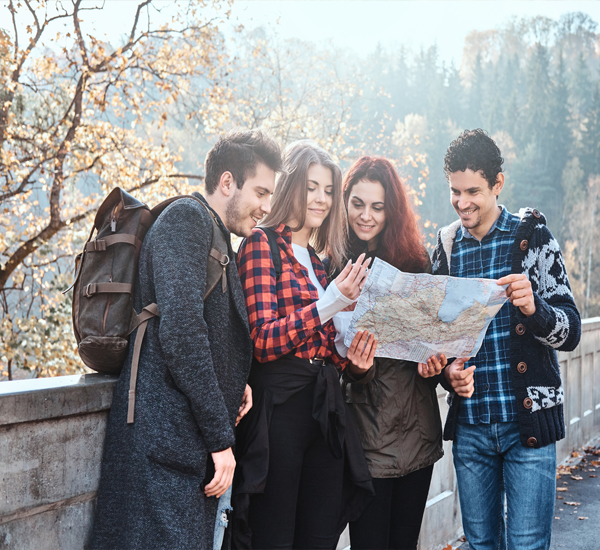Crafting Unforgettable Journeys: The Ultimate Student Tour Planner Guide
Are you a student with the itch to explore and learn beyond the classroom? Welcome to the world of student travel, where educational adventures come to life. Whether you’re planning a school trip, a college expedition, or a university study tour, here’s your comprehensive guide to becoming the best student tour planner.
1. Identifying Educational Objectives:
Start by clearly defining the educational goals of your trip. What subjects or themes do you want to explore, and how does the itinerary align with your academic curriculum?
2. Researching Student-Friendly Destinations:
Seek out destinations that offer a perfect blend of educational enrichment and student-friendly experiences. Look for places with engaging museums, historical sites, and interactive learning opportunities.
3. Collaborating with Educators:
Engage with your teachers or professors to ensure that the trip aligns seamlessly with your academic objectives. Work together on workshops, lectures, and activities that enhance your learning experience.
4. Budgeting and Fundraising Strategies:
Create a realistic budget, considering transportation, accommodation, meals, and entrance fees. Explore creative fundraising strategies to make the trip financially accessible and inclusive for all students.
5. Prioritizing Safety and Well-being:
Safety is paramount. Choose reputable travel agencies, stay updated on travel advisories, and establish clear emergency protocols. Ensure that all participants are well-informed about safety guidelines.
6. Immersing in Local Culture:
Make the most of your travel by immersing yourself in the local culture. Plan guided tours, language lessons, and interactions with locals to add a valuable layer to your educational experience.
7. Hands-On Learning Experiences:
Seek out interactive museums, science centers, historical sites, and educational institutions. Hands-on learning experiences not only deepen your understanding but also make the trip more memorable.
8. Team-Building Activities:
Incorporate team-building exercises and group activities to foster camaraderie among students. These activities strengthen bonds and contribute to a positive group dynamic.
9. Documenting the Journey:
Encourage students to document their experiences through journals, photography, or vlogs. Not only does this create lasting memories, but it also serves as a reflective tool for post-trip discussions.
10. Post-Trip Reflection and Assessment:
Allocate time for post-trip reflections where students can share insights, learning moments, and the impact the journey had on their academic growth. Use feedback to refine future student tours.
11. Sustainable and Responsible Travel:
Introduce students to sustainable and responsible travel practices. Foster an awareness of environmental conservation and cultural respect, ensuring students become conscientious global citizens.
12. Flexibility in Itinerary:
Maintain flexibility in the itinerary to accommodate unforeseen circumstances or unexpected opportunities. A balance between planned activities and spontaneous discoveries enhances the overall experience.
13. Inspiring Future Travelers:
Showcase the trip through presentations, exhibitions, or blog posts to inspire other students and educators. Share success stories and lessons learned to encourage future educational travel initiatives.
Being the best student tour planner involves meticulous planning, enthusiasm, and a commitment to creating educational adventures that resonate with your peers. Your journey begins here – craft experiences that ignite a passion for exploration and instill a love for lifelong learning. Safe travels on your educational adventure!


